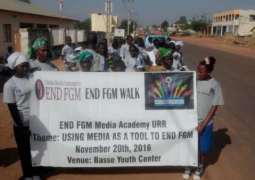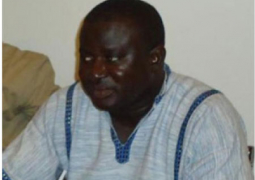The Gambia National Commission for UNESCO, NATCOM on Thursday hosted at a three-day sub-regional workshop on the revitalisation of cross-border languages, aimed at strengthening inter-regional dialogue and to promote access to universal knowledge.
The forum that attracted participants from Mali, Guinea-Bissau, Senegal and The Gambia was held at the Baobab Holiday Resort, in Kololi.
In his welcoming remarks, Yahya Al-Matarr Jobe, acting Secretary-General of NATCOM, said the sub-regional meeting on the revitalisation of cross-border languages would avail the participants with the opportunity to discuss strategies to strengthen local languages, as a way of promoting inter-regional dialogue, the culture of peace and universal access to knowledge.
He said the activity is being funded by the UNESCO, under its 2012-2013 participation programme.
Mr. Jobe noted that the sub-regional forum has brought together experts in different African languages, namely Mandinka, Pulaar and Wollof, all from the participating countries.
Present at the forum were services-providers, linguists, writers, educationists, members of civil society organisation and members of the vehicular cross-border language commission of the ACALAN, the African Academy of Language.
According to Mr. Jobe, the workshop aimed to promote widely spoken cross-border languages in education and for communication in the major regional and sub-regional groupings.
He further noted that for sixty years now, the use of learning one’s mother tongues as a medium of instruction in education system improves the quality of education.
The number of languages spoken in Africa varies between 1,000 and 2,500, depending on estimates and definitions.
He said the workshop will equip the participants with facts on decisions and effective actions that would promote sub-regional and regional integration, through the use of common languages.
While noting that as African language are yet to be fully discovered, valued and used, he said, this is one of the reasons why UNESCO is promoting widely spoken cross-border languages in the educational system.
In his official opening of the session, on behalf of the Minister of Basic and Secondary Education, Dr. Momodou Tangara, the Minister of Higher Education, Research, Science and Technology, said history has taught that the use of these common languages has ever facilitated communication and dialogue within these countries.
“Over the years the use of these national languages is being eroded and contaminated and distorted by foreign influence, because of their incapacity to promptly react to the aggressive invasion of foreign terminologies, jargons words,” he stated.
Noting that the non-actualisation of the local languages poses threat that restricts regional dialogue and limits access to universal knowledge, he thanked UNESCO for coordinating and funding sub-regional workshop, under the 2012-2013 UNESCO participation programme.
Speaking on behalf of the Minister of Tourism and Culture, Mr. Baba Ceesay, the Director-General of the National Centre for Art and Culture, said as the cultural arm of the ministry, the NCAC, as a repository of the oral history and traditions has in the past years worked hard to promote the use of Gambian languages.
In a statement delivered on behalf of the ACALAN, Mr. Sedia Jatta, said the goal of the academy includes harmonisation of the alphabets and orthographies of the languages, among others.



